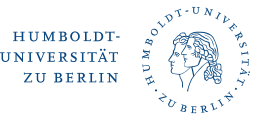In the fall semester 2021, the Berlin Graduate Symposium for Modern and Contemporary Art History will take place for the third time as an event jointly organized by the department of Modern and Contemporary Art at the Art History Institute of FU Berlin and the research area of Modern Art History in the Department of Art and Visual History of HU Berlin.
Application deadline: 5 July 2021
The annual symposium aims to bring advanced graduate students (MA and PhD) into an open exchange about their current research projects within the fields of art history and visual culture from the nineteenth century to the present. For each conference another central theme helps to focus the shared discussions. The organizers of the symposium wish to provide a platform for a diverse group of young scholars to engage in a free and critical dialogue among each other and with invited experts. Furthermore, participants of past symposia will be invited to lead discussions in the interest of further expanding a community of young scholars within Germany and abroad.
This year’s graduate symposium, “Transcultural Perspectives in Art (History),” addresses the impact of the complex processes of globalization on the formation of art-historical knowledge, its theories and methods of research, as well as the practices of art criticism and curating since the nineteenth century. In art-historical research, the paradigm of transculturality can serve as a counter-model to approaches and perspectives that are restricted to a national or territorial understanding of culture. Submitting the conventional methods and concepts of the discipline to scrutiny, a transcultural approach foregrounds the complexity of geo-political relations, cultural processes of exchange, and the polyvalence of reception models. This change in perspective resulted in a reconsideration and, frequently, re-evaluation of nineteenth-century media such as photography and film, postcards and slide projections and their specific function and use, while the locally and geographically diverse structures of archives and their holdings have also received renewed attention.
From a transcultural vantage point, the critical study of modern art in Europe and North America likewise has undergone substantial change: In its various aesthetic currents and avant-garde manifestations, Euro-American art claimed to be universal even if many of its ideas and procedures were based on the appropriation of visual cultures of the Global South whose contemporaneity by this very same gesture was denied, situating them as ‘exotic’ or otherwise ‘other’ within a colonial order of knowledge. By the same token, art history implemented a hierarchical division between the supposed centers and peripheries of the avant-garde, which ignored the multiple entanglements and negotiations between cultural practices on a transnational scale. It also blocked a recognition of such historical phenomena as a global modernism, transmodernity or “alternative modernities.” Up to the moment of 1960s’ conceptualism, artistic practices were deemed advanced only if they adhered to a program of formal and strategic innovation, which, implicitly or explicitly, encouraged processes of cultural dispossession or, alternatively, repressed cosmopolitan, migrant or diasporic narratives as incompatible with national constructs of cultural heritage and remembrance.
Even more recent conceptions such as the “expanded field of art” or the cross-disciplinary nature of postmodern art, tend to remain enclosed within a framework of euro-centric thought. Likewise, contemporary art practices which engage with diasporic or migratory experiences may still be relegated to ‘contact zones’ which are structured in a dynamic, yet hierarchical manner. There is no doubt that the recent formation of a ‘globalized’ art world, with its ever-expanding, transnational exhibition system and market economy, has given visibility to a more diverse set of modern and contemporary artistic practices than ever before, but this development of a so-called ‘global art history’ should not be mistaken for some new form of universalism. Rather, this process of globalization has caused different force lines, alternate hierarchies and new forms of elitism to emerge which we, as art historians, must learn to detect and trace.
At the same time, postcolonial perspectives have significantly challenged and altered the conventional set of art-historical methods and museum practices. Our present is marked by the urgent need for a new politics of representation, which is not satisfied by merely pointing towards the gaps and omissions within the modernist canon of art, but is willing to question the construction of its dominant narratives on a more profound, structural level. A similar challenge that art history faces today is the long overdue reckoning of Western museums with their colonial past, giving rise to a vigorous debate about the restitution of cultural artifacts and, more in general, the decolonization of our institutions of teaching, research, and collecting.
Organizers:Prof. Dr. Eric C. H. de BruynProf. Dr. Eva EhningerDr. des. Johanna Függer-VagtsDr. André Rottmannwith Hanna Steinert, Johanna Engemann and Frederik Luszeit
Keynotes:
Monica Juneja, Heidelberg University, November, 12, 2021
Sudeep Dasgupta, University of Amsterdam, November, 13, 2021
Submission may address some of the aspects listed below (without being limited to them):
– Case studies on histories of entanglement in modern and contemporary art
– “Alternative Modernities”, the avantgardes and (post-)colonialism
– Intersectionality and theories of transculturality in art and visual history
– Migration and Exile Studies in visual culture, art and diaspora
– Artistic practice and transnational mobility, media and images of tourism
– Applied arts in a global context
– Documentary aesthetics and ethnological/ethnographic representation
– Provenance research and restitution, studies in the history and structure of specific collections/archival holdings
– Curatorial practice and exhibition histories
Against the backdrop of these historical developments and methodological challenges, junior researchers are invited to submit proposal in the form of an abstract (max. 350 words) for a 25 minutes long paper as well as a short CV.
The deadline is July 5, 2021. Please apply by email at: arbeitsbereich-debruyn@geschkult.fu-berlin.de.
Participants will be notified by August 1, 2021.


You must be logged in to post a comment.